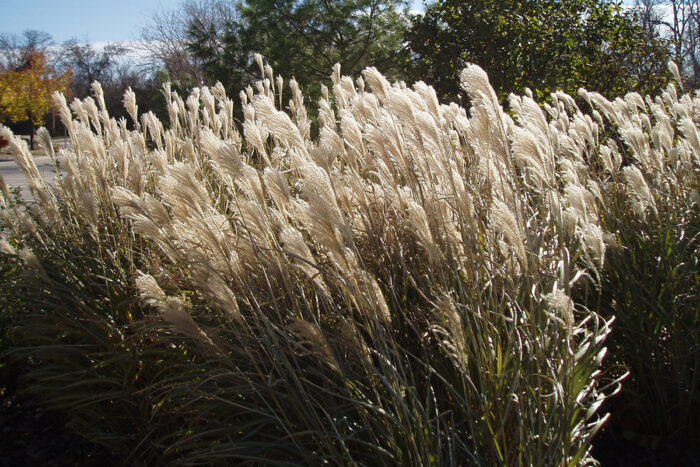
There is a wide variety of beautiful perennial grasses that are great for the Midwest landscape. They provide color, form, texture, and movement through their foliage and flowers. They can also provide fantastic fall color and serve as screens or focal points. Even better, their interest extends into winter. Any Midwesterner knows that our winters can be quite variable in terms of what Mother Nature will provide, so determining the toughest grasses for winter interest becomes vital if you want their charm to last all season long.
In terms of extended interest into the late winter months, not all grasses are created equal. Unfortunately, many species lack the extended stem strength and durability to maintain stature during the brutal winter months. Winds, ice storms, snow, and rain will combine to batter at grasses, and many will lose form by the end of the season. If you’re looking for winter structure, focus instead on planting those with a proven track record. The six selections below will keep their shape all winter.
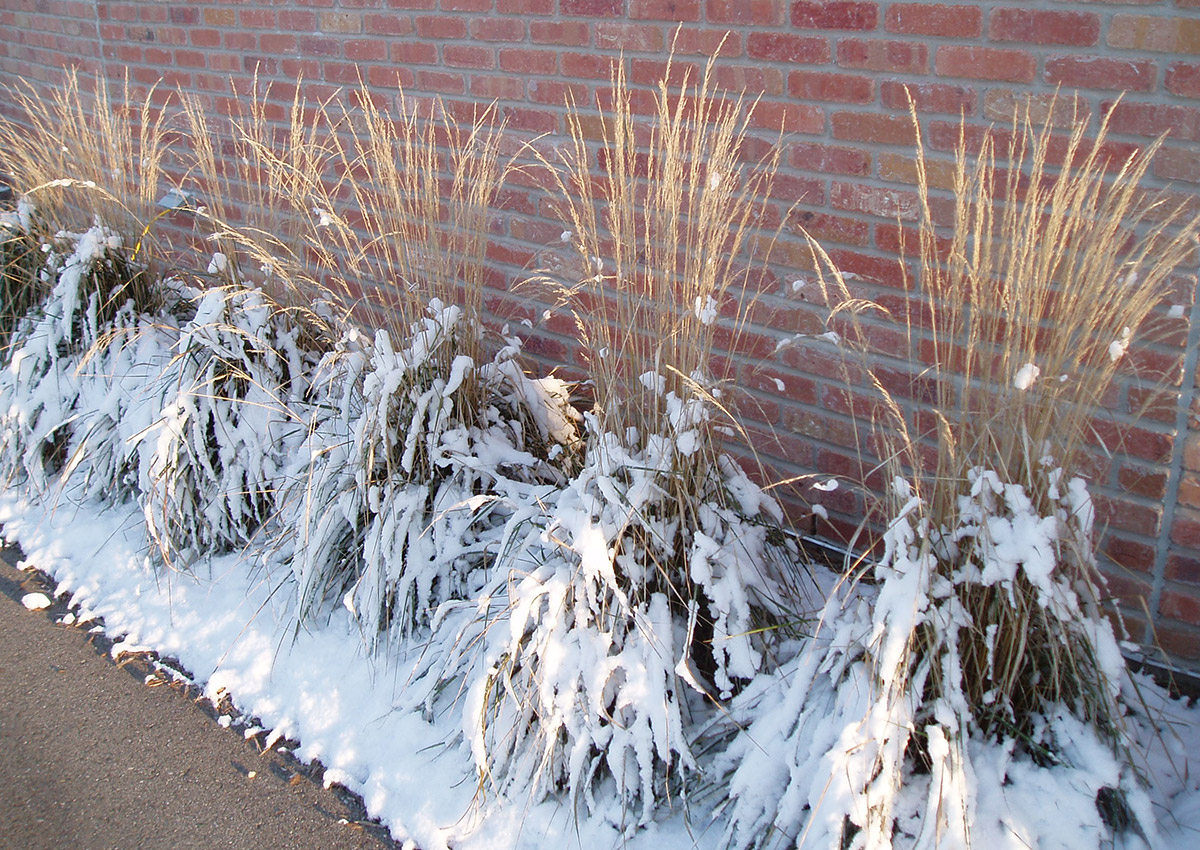
‘Avalanche’ feather reed grass
Calamagrostis × acutiflora ‘Avalanche’, Zones 4–9
This durable grass emerges early and quickly forms a narrow column of foliage that grows up to 5 feet tall when flowering in midsummer. The foliage is creamy and variegated, and its superb verticality extends well into the winter months. Consider using this grass as an accent or in masses. Tolerant of drought and clay soils, ‘Avalanche’ takes full to partial sun and is of no interest to deer or rabbits. Cut it back in late winter as new growth commences in very early spring. There are many other varieties of this cross (including other variegated forms) that are worth checking out as well.
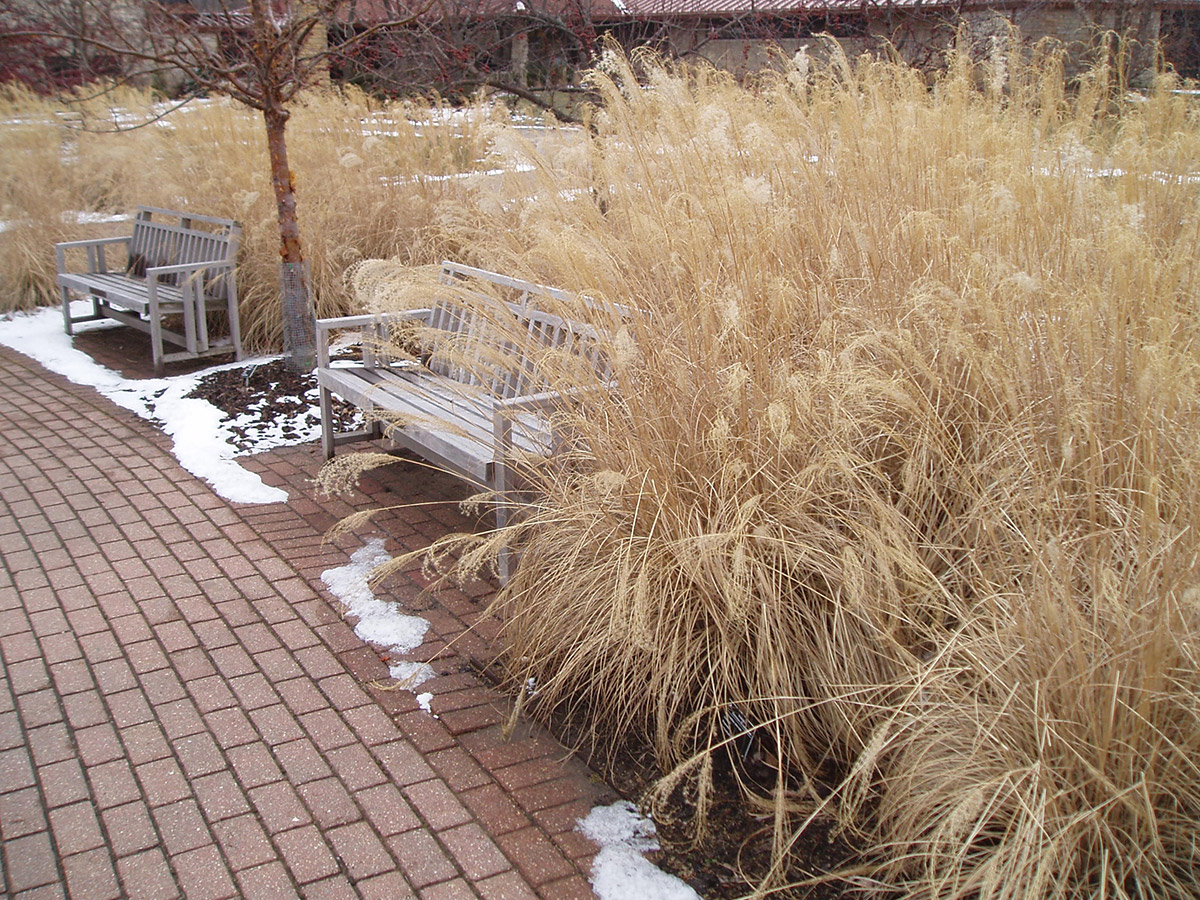
‘Adagio’ miscanthus
Miscanthus sinensis* ‘Adagio’, Zones 4–9
This is one of the shortest cultivars of miscanthus available on the market, growing to just 3 to 4 feet tall and 5 feet tall when flowering. Although this species has developed an invasive problem in some southern parts of the Midwest, that is more of an issue in the Southeast and Mid-Atlantic. Tolerant of drought, erosion, and air pollution, ‘Adagio’ is perfect in full sun and urban environments, and it needs little care once established. This is a very desirable selection for its symmetrically rounded habit, abundant flowers, and persistence of both stems and flowers into the winter months.
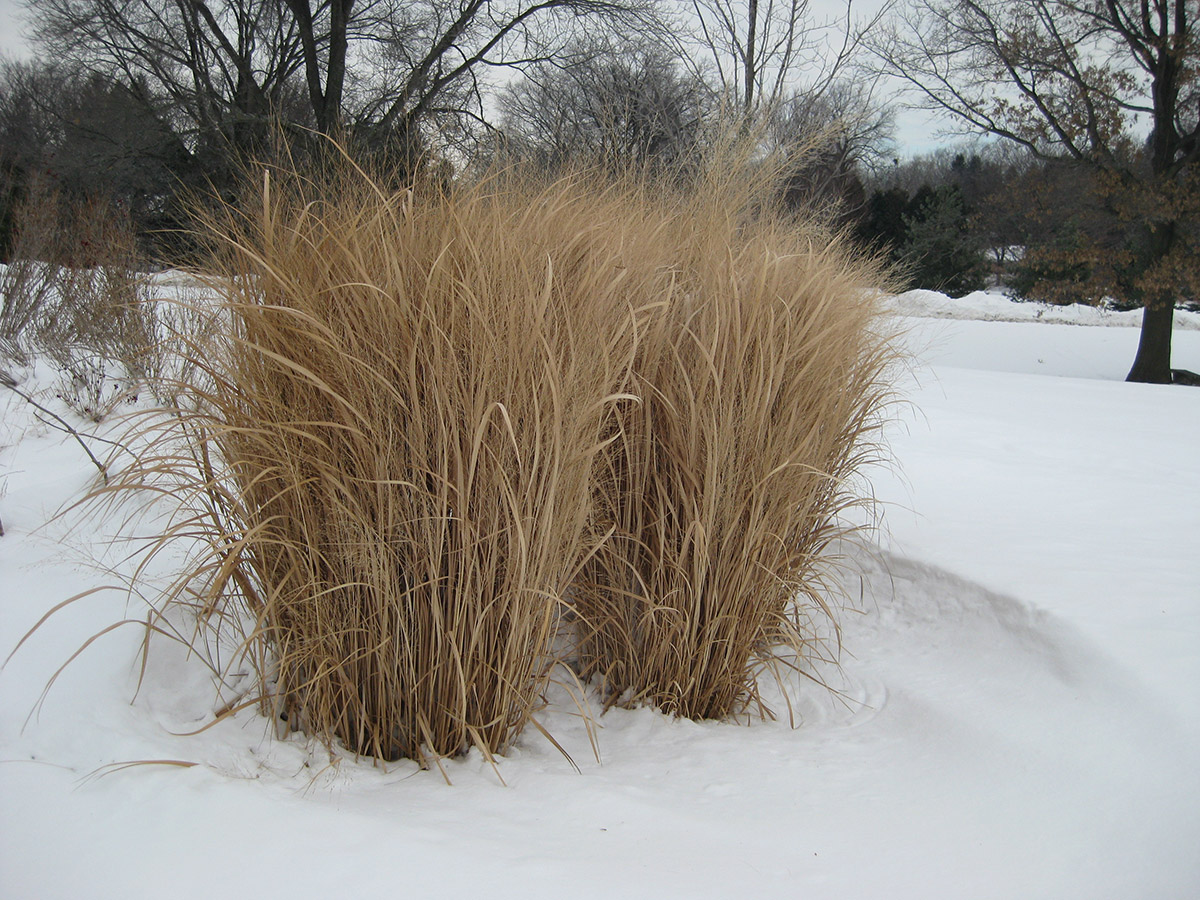
‘Northwind’ switchgrass
Panicum virgatum ‘Northwind’, Zones 4–9
This is one of the best vertical selections of switchgrass available. Winner of the 2014 Perennial Plant of the Year from the Perennial Plant Association, this grass has many uses and an established and lengthy record of success. ‘Northwind’ is also one of the best candidates if you’re searching for a rigid, taller grass to look good through the entire winter. It grows 5 to 6 feet tall and takes full to partial sun. The erect form of this native grass lends itself to narrow locations and mass plantings, and to use as a focal point. It truly looks like an exclamation point in the landscape. This personal favorite of mine is also very low maintenance and adaptable to many situations (wet to dry). The foliage is olive green and blue in summer and turns beige for fall and winter.
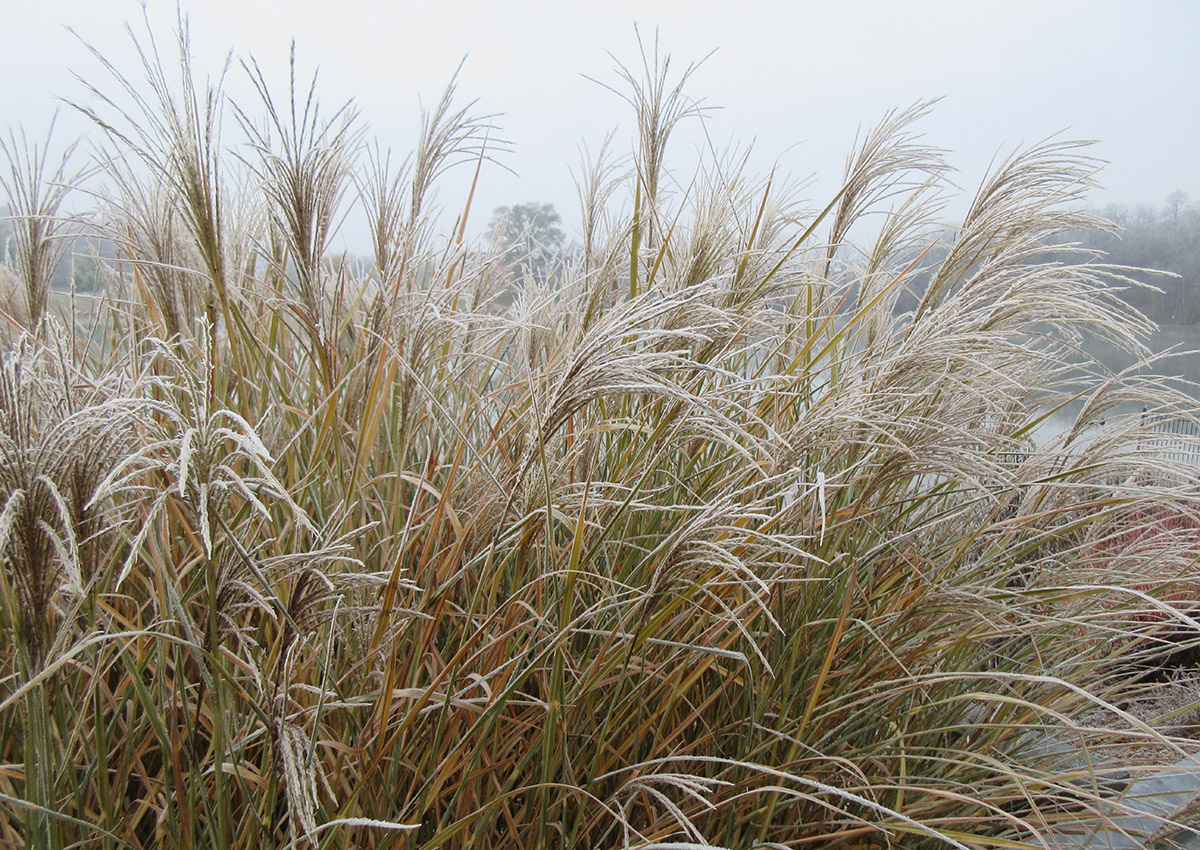
‘Blondo’ miscanthus
Miscanthus sinensis* ‘Blondo’, Zones 4–9
This variety may be a little more difficult to source than others, but it has such significant flowering that it looks like pampas grass (Cortaderia selloana*, Zones 8–10). Growing 6 to 7 feet tall, ‘Blondo’ takes full sun. At a local botanic garden, I saw rows of this grass placed along a parking lot in tough soil conditions. Despite the brutal location (not to mention the salt inputs the plants would face during the winter), the established grasses were thriving. ‘Blondo’ looks great planted as a solitary specimen or in masses.
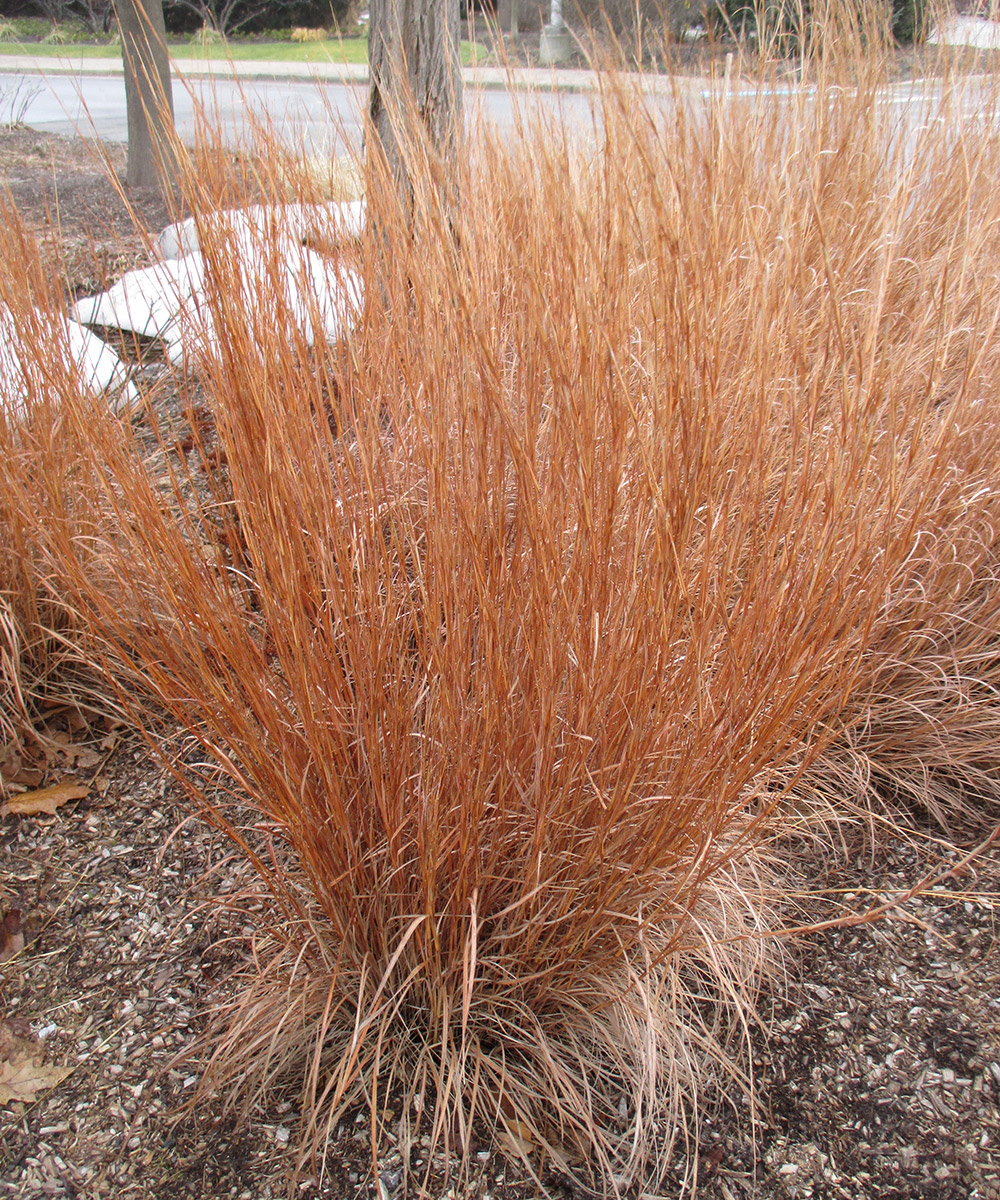
‘The Blues’ little bluestem
Schizachyrium scoparium ‘The Blues’, Zones 3–9
This popular selection of native little bluestem looks wonderful throughout the growing season and well into the winter months. Selected for a more intense, steely blue foliage coloration in spring and summer, ‘The Blues’ also has a showy, russet, orange-red fall coloration that fades to a glowing bronze in winter. Fluffy, silver seed heads complete the late-season look. Adaptable in many locations and tolerant of drought and deer, ‘The Blues’ little bluestem grows 2 to 4 feet high in full sun. It continues to be one of the best of the many little bluestem introductions. Consider the variety ‘Standing Ovation’ as well. It offers similar traits in a slightly taller package.
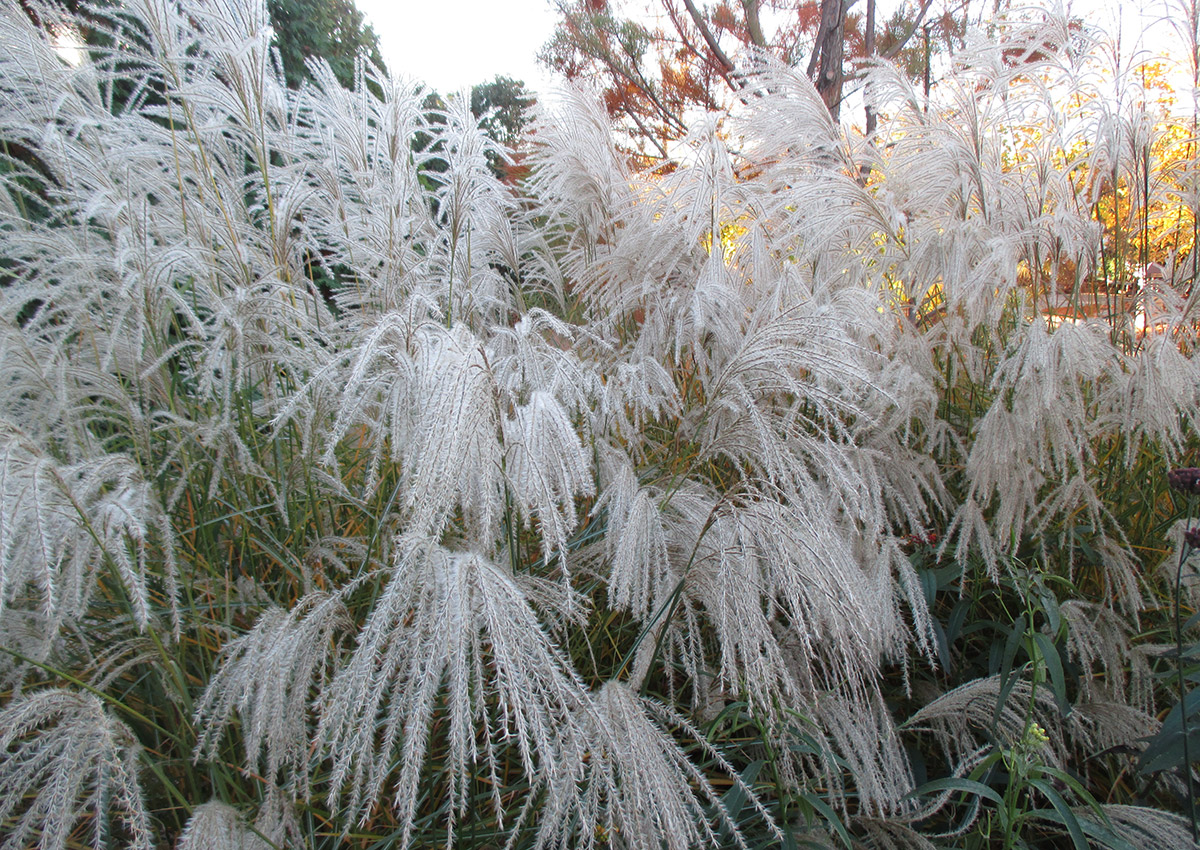
‘Graziella’ miscanthus
Miscanthus sinensis* ‘Graziella’, Zones 4–9
I recommend ‘Graziella’ miscanthus for northern areas of the Midwest, as it blooms earlier in the season than many miscanthuses, with persistent flowers and a structure that lasts well into winter. Adaptable in a wide range of soils and tolerant of summer heat, this low-maintenance grass is also deer resistant. It grows 5 to 6 feet tall and takes full sun. ‘Graziella’ is a refined selection with narrow leaves, an arching form, nice tan fall coloration, and significant and long-lasting flowers.
To maximize the contribution of these grasses in your garden, consider their mature size when installing them. This includes not only their height, but width, as many of these grasses will arch out and need plenty of elbow room well above ground level.
*These plants are considered invasive in some areas of the country. Please visit invasiveplantatlas.org for more information.
Mark Dwyer, former director of horticulture at Rotary Botanical Gardens in Janesville, Wisconsin, operates Landscape Prescriptions by MD.
Fine Gardening Recommended Products
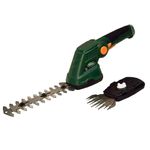
Scotts Cordless Grass-Shear/Shrub-Trimmer Combo
Fine Gardening receives a commission for items purchased through links on this site, including Amazon Associates and other affiliate advertising programs.
- 13.5 x 3 x 5 inches
- Uses a 7.2-Volt 2Ah high-capacity built-in lithium-ion battery; Includes a fast charger
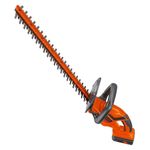
Black and Decker 22-inch Cordless Hedge Trimmer
Fine Gardening receives a commission for items purchased through links on this site, including Amazon Associates and other affiliate advertising programs.
- 38 x 7 x 7 inches
- 6.9 pounds
- 1 Lithium Ion battery required (included)


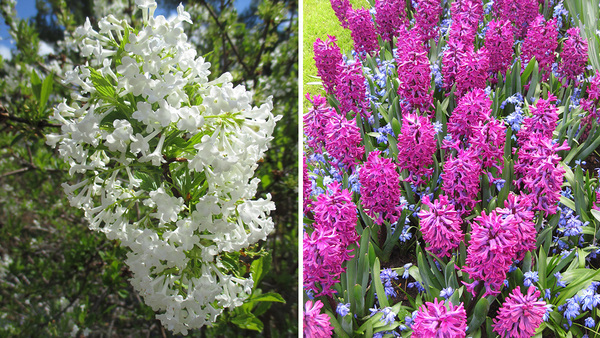



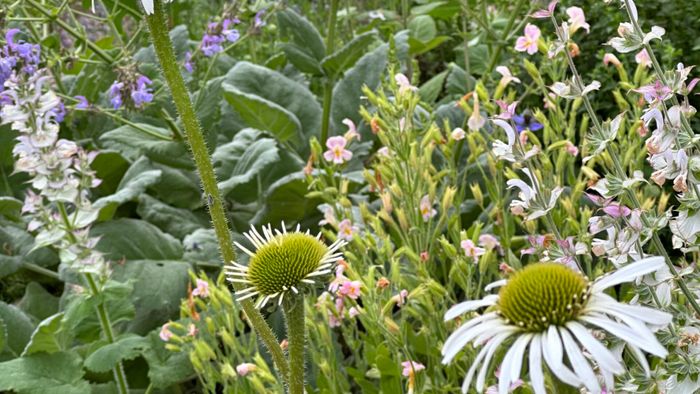
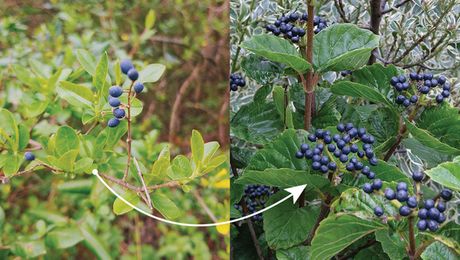











Comments
Log in or create an account to post a comment.
Sign up Log in